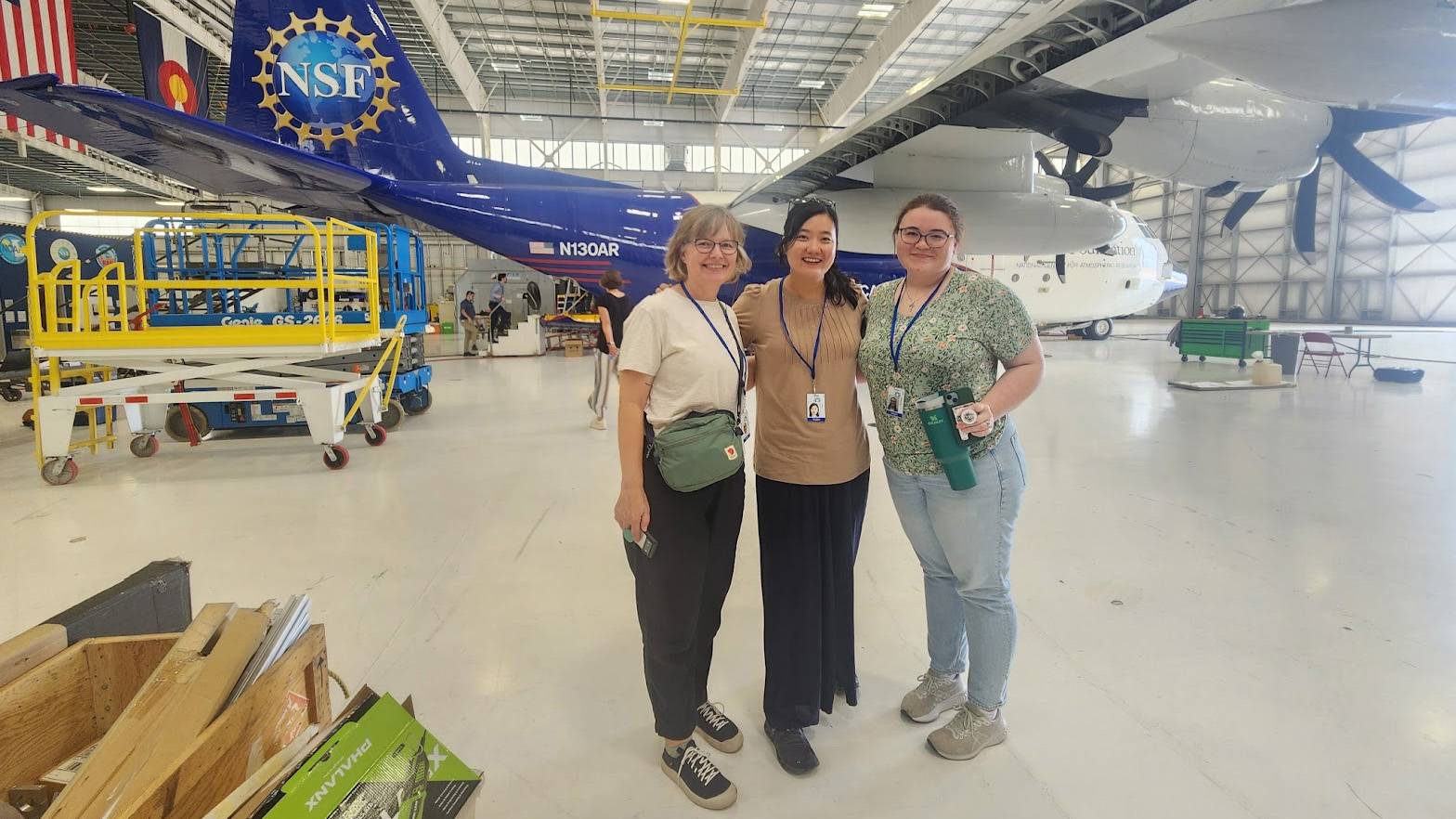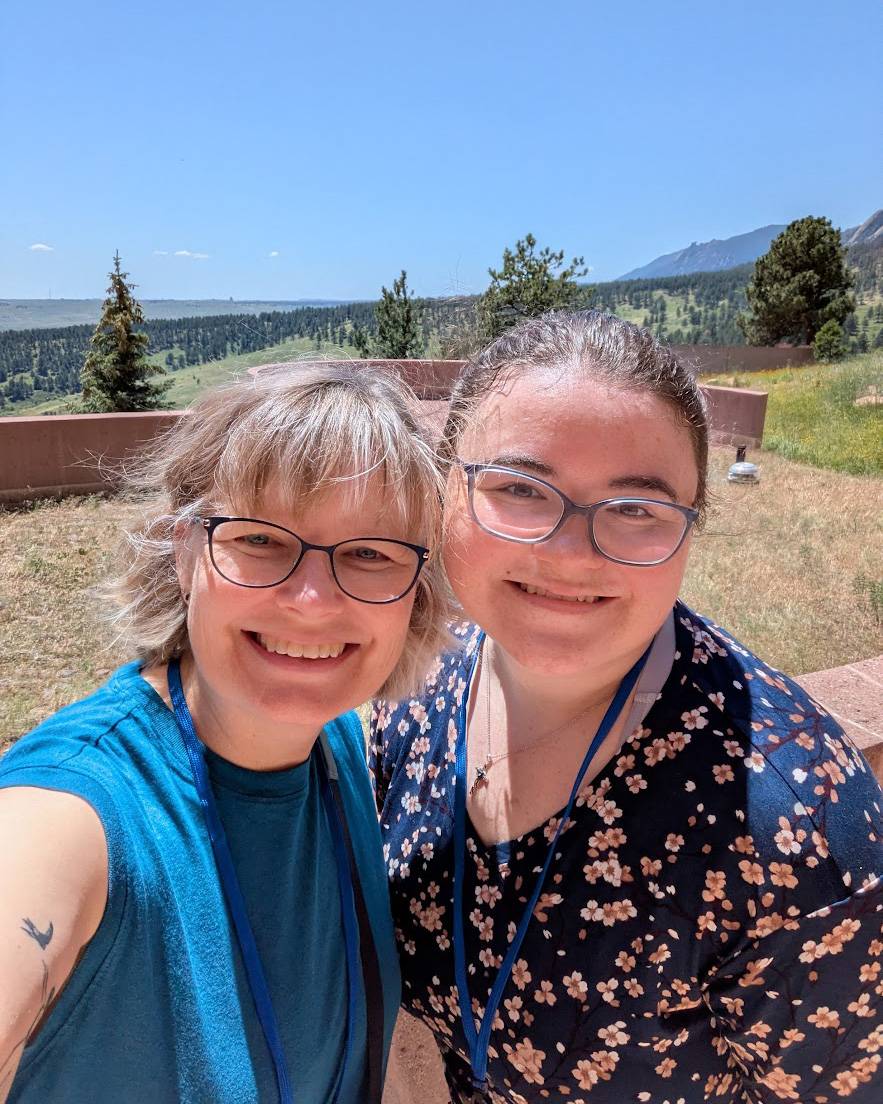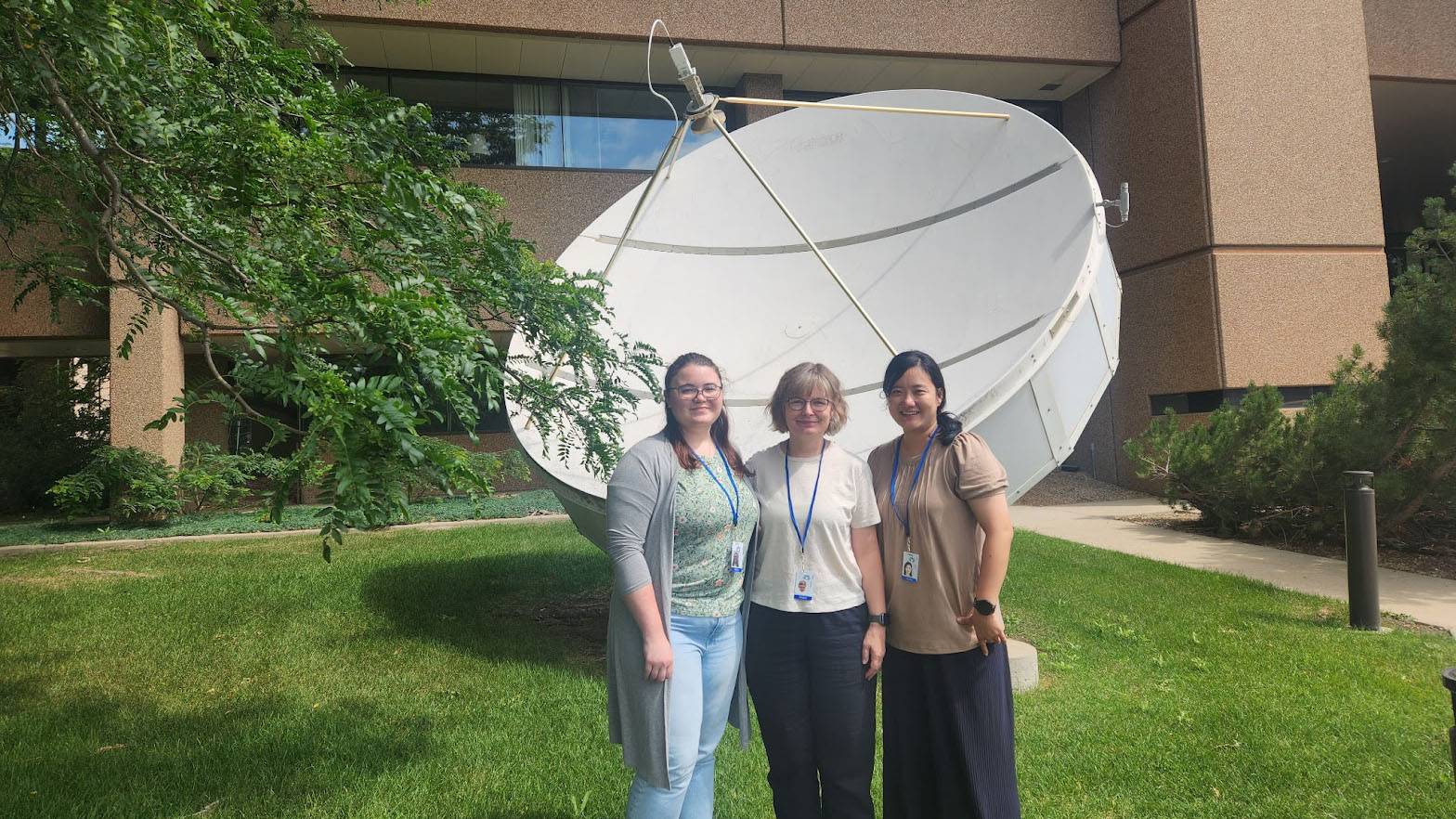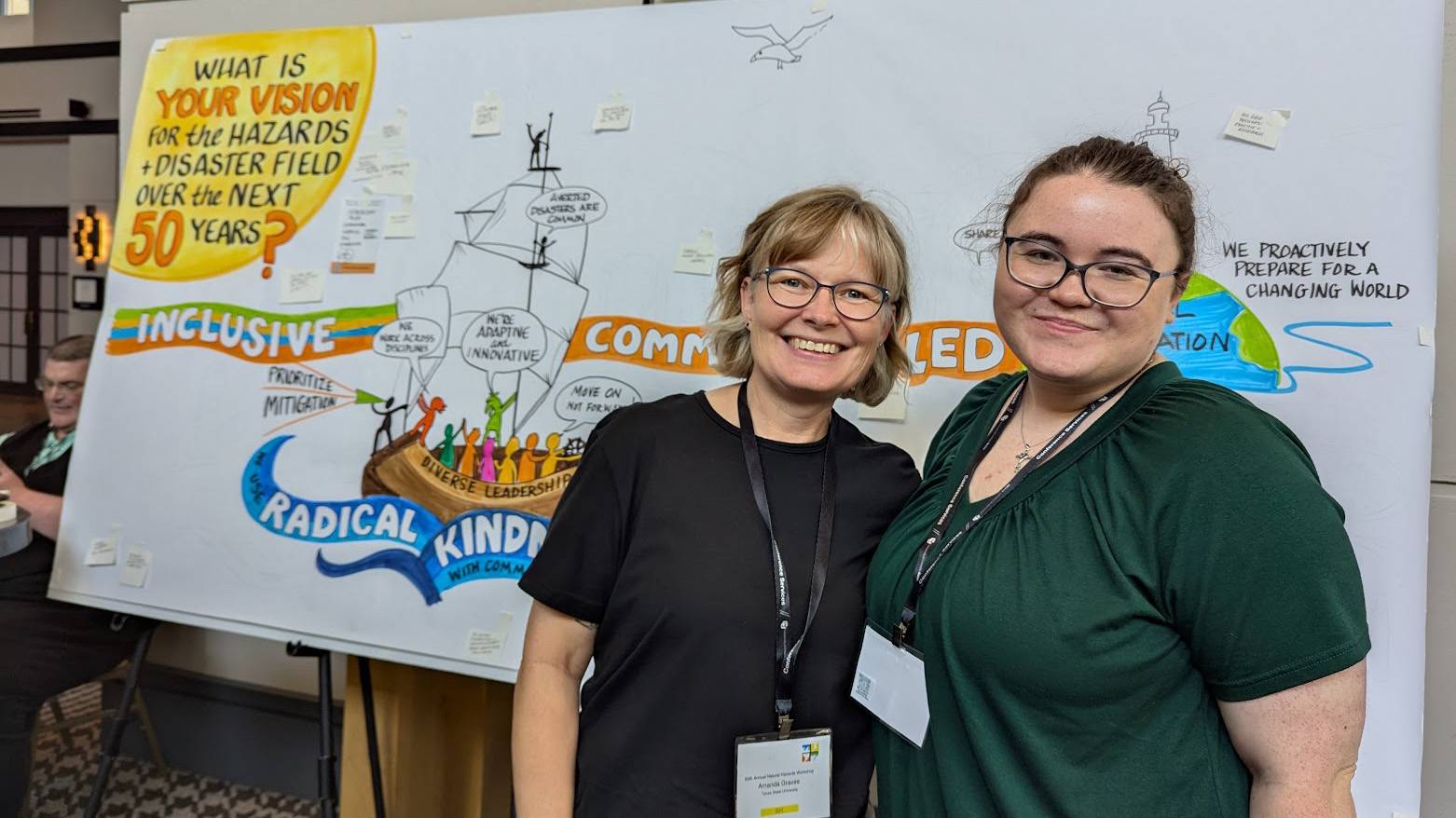Amanda Graves and Lacey Koehler, two students in the master of social work program at Texas State University, recently took part in the National Science Foundation (NSF) Early Career Faculty Innovator Program at the National Center for Atmospheric Research (NCAR) in Boulder, Colorado.
This residency was made possible by an NCAR grant awarded to Shinwoo Choi, Ph.D., assistant professor in TXST’s School of Social Work, in 2023. The grant supported Choi’s study into Winter Storm Uri’s impacts on marginalized communities in Texas and ways to strengthen the resiliency of urban and rural communities for future weather disasters.

In July, Graves and Koehler spent three weeks attending educational meetings, touring research labs, presenting their research at the NCAR PI Symposium, and listening in on sessions during the National Hazards Research and Applications Workshop.
“We toured an airplane that was being outfitted to fly to New York City to study pollution plumes,” Graves said. “We saw all kinds of cool stuff.”

Graves is a New York native, and Koehler is a Colorado native. Severe winter weather is familiar to both of them, so when Choi approached them about the study and residency, they were eager to join.
“Moving to a southern state and having the experience of Uri during COVID made me wonder what the impacts were in vulnerable populations,” Koehler said.
During the residency, the goal was to pair up professors and their students with NCAR scientists to study social science issues related to atmospheric weather and research.
The two Bobcats found during their research that there’s a large gap in research in Southern states as it pertains to winter weather disasters.
“We presented a systematic review on winter weather and how it impacts vulnerable populations,” Graves said. “There’s a lot of hurricane and wildfire research, but not much on winter weather, particularly in Southern states. That was our biggest finding. We have all our data now, and we’re working on analyzing it to see what solutions we can recommend for future storms.”

Koehler focused her time on the impacts to people with disabilities and various health concerns. She is now working on individual quantitative papers on improving emotional and well-being outcomes for families during future events.
The students aim to have their research articles published in academic journals later this fall.
After reflecting on their time at NCAR, both Graves and Koehler have reconsidered what they want to do in their career once they graduate in December.
